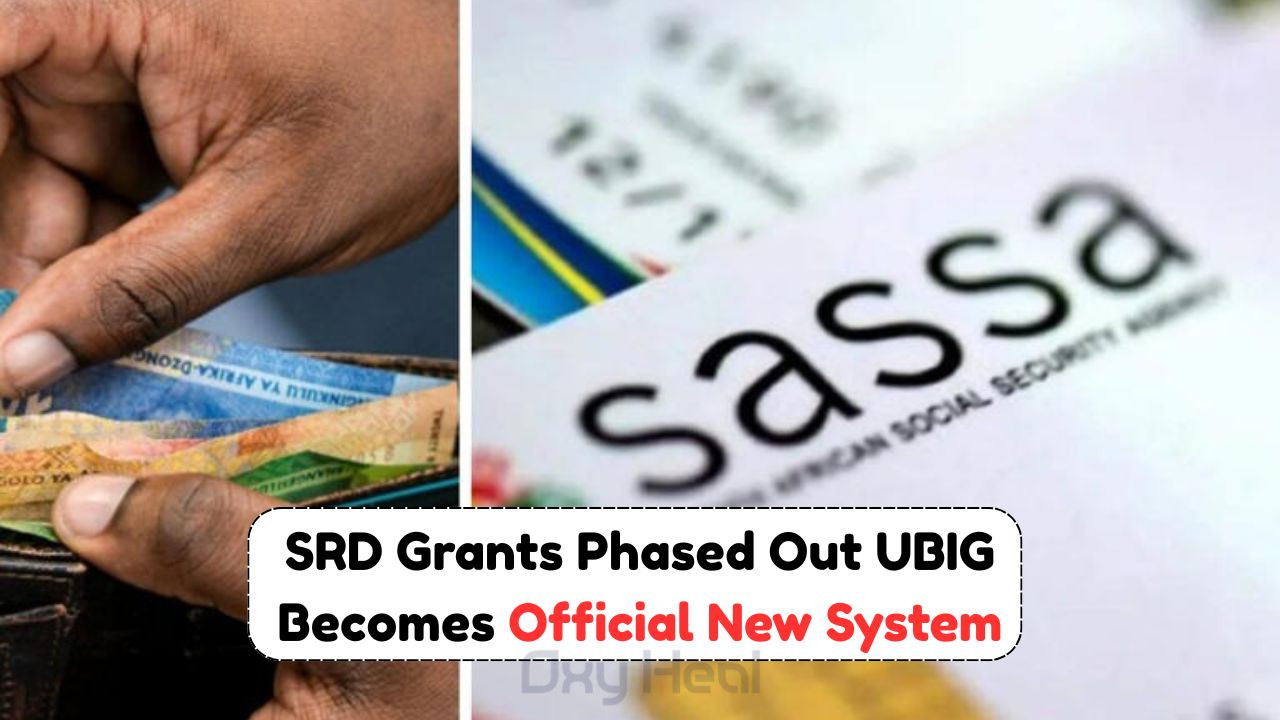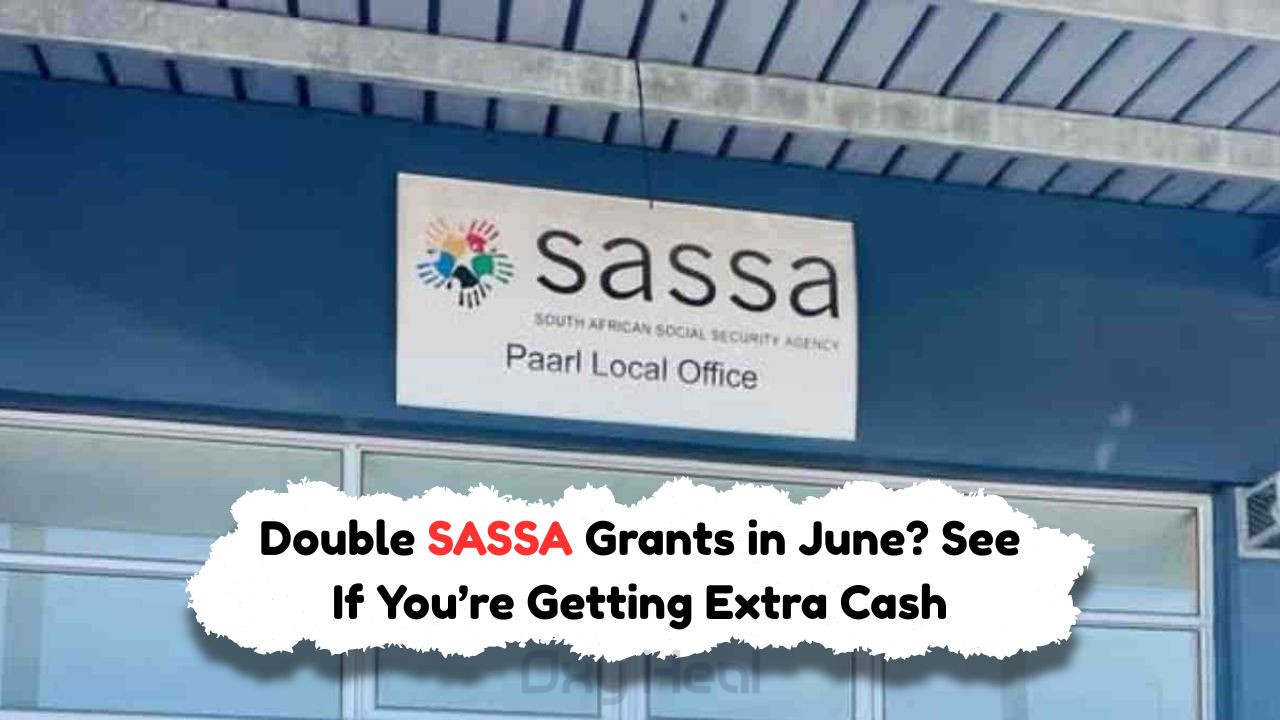SASSA’s Bold Move: South Africa’s social support landscape is undergoing a transformational change as the South African Social Security Agency (SASSA) announces a significant overhaul. The well-known Social Relief of Distress (SRD) Grant is set to be replaced by the Universal Basic Income Grant (UBIG), marking a pivotal shift in the nation’s approach to social welfare.
SASSA’s New Approach to Social Welfare
The introduction of UBIG comes as part of a broader strategy to enhance social security measures across South Africa. This plan aims to provide a consistent and reliable source of income for citizens, irrespective of their employment status. Unlike the SRD Grant, which was a temporary relief measure, the UBIG is designed to offer a long-term solution, reflecting the government’s commitment to addressing poverty and inequality.
Key Features of the UBIG:
div id="div-gpt-ad-1748372014361-0">
- Universal Coverage: The UBIG aims to cover all South African citizens, ensuring no one is left behind.
- Monthly Disbursement: Beneficiaries will receive regular monthly payments, providing a stable income source.
- Income Security: By offering a guaranteed income, the UBIG seeks to reduce economic vulnerability and promote financial stability.
- Administrative Efficiency: Streamlined processes will be implemented to ensure timely and efficient distribution of funds.
Impact on South African Society
The shift from the SRD Grant to UBIG is expected to have far-reaching effects on South African society. By providing a universal safety net, the government hopes to stimulate economic growth, reduce poverty levels, and promote social cohesion. The UBIG is anticipated to empower individuals, enabling them to pursue educational opportunities and entrepreneurial ventures without the constant pressure of financial insecurity.
Expected Outcomes:
- Reduced Poverty Levels: With a consistent income, citizens are less likely to fall below the poverty line.
- Economic Growth: Increased consumer spending power can drive economic expansion.
- Social Stability: A stable income reduces crime and social unrest by addressing economic inequalities.
- Health and Wellbeing: Financial security can lead to improved mental and physical health outcomes.
- Educational Advancements: Individuals can invest in education, enhancing future job prospects.
- Scholarships and training programs may see increased enrollment.
- Long-term skills development can bolster the workforce.
- Entrepreneurial Initiatives: Citizens may be more inclined to start businesses, fostering innovation.
- Community Development: Local communities can benefit from increased financial activity.
As this initiative rolls out, monitoring its impact will be crucial to ensure it meets the intended objectives.
Challenges and Considerations
While the UBIG presents numerous benefits, several challenges must be addressed to ensure its success. These include funding the program sustainably, managing the transition effectively, and preventing potential misuse of funds. The government must also ensure that the UBIG complements existing social programs rather than replacing them.
Potential Challenges:
- Funding Sustainability: Ensuring a steady financial source to support the UBIG without compromising other budgetary needs.
- Program Integration: Seamless integration with existing social welfare systems to prevent overlaps.
- Fraud Prevention: Implementing robust measures to prevent fraudulent claims and misuse of funds.
- Public Awareness: Educating the public about the UBIG’s objectives and benefits to garner widespread support.
- Monitoring and Evaluation: Establishing mechanisms to assess the program’s effectiveness and make necessary adjustments.
- Political Support: Gaining and maintaining the support of policymakers and stakeholders.
Addressing these challenges head-on will be crucial for the UBIG’s long-term success.
Comparative Analysis: SRD Grant vs. UBIG
| Aspect |
SRD Grant |
UBIG |
| Duration |
Temporary |
Permanent |
| Coverage |
Selective |
Universal |
| Payment Frequency |
Ad-hoc |
Monthly |
| Eligibility |
Means-tested |
Non-means-tested |
| Objective |
Relief |
Income Security |
| Impact |
Short-term |
Long-term |
| Funding |
Government Budget |
Mixed Sources |
| Implementation |
Complex |
Streamlined |
The transition from the SRD Grant to UBIG represents a significant evolution in social welfare policy, aiming to provide broader and more enduring support.
Implementation Timeline
As part of the rollout, the government has outlined a phased implementation plan to ensure a smooth transition.
| Phase |
Timeline |
Details |
| Phase 1 |
Q1 2024 |
Initial pilot programs in select regions |
| Phase 2 |
Q3 2024 |
Expansion to additional provinces |
| Phase 3 |
Q1 2025 |
Nationwide implementation |
| Phase 4 |
Q3 2025 |
Evaluation and adjustments based on feedback |
| Phase 5 |
Q1 2026 |
Full-scale operation with continued monitoring |
| Phase 6 |
Q3 2026 |
Comprehensive review and policy refinement |
| Phase 7 |
Q1 2027 |
Long-term assessment and strategic planning |
Community Support
Engaging Stakeholders
Community involvement is essential for the success of the UBIG. The government plans to engage with various stakeholders to ensure the grant meets the needs of all citizens.
- Consultation with Civil Society: Engaging with NGOs and community organizations to gather input.
- Feedback Mechanisms: Creating channels for the public to provide feedback on the grant’s implementation.
- Public Awareness Campaigns: Launching initiatives to educate citizens about the UBIG.
- Collaboration with Businesses: Partnering with the private sector to support economic opportunities arising from the UBIG.
- Ongoing Research: Conducting studies to understand the grant’s impact on various demographics.
- Policy Adjustments: Making data-driven adjustments to enhance program effectiveness.
- Regular Updates: Keeping the public informed about progress and changes.
Monitoring and Evaluation
Assessing the UBIG’s Impact
To ensure the UBIG achieves its goals, continuous monitoring and evaluation will be conducted.
- Tracking economic indicators to measure the grant’s impact on poverty and employment.
- Conducting surveys to assess beneficiary satisfaction and areas for improvement.
- Analyzing demographic data to understand the grant’s reach and effectiveness.
- Reporting findings to stakeholders and the public to maintain transparency.
Future Prospects
Looking ahead, the UBIG represents a bold step in South Africa’s journey towards a more equal society.
- Long-Term Economic Stability: The grant has the potential to drive sustainable economic growth.
- Social Cohesion: By reducing inequality, the UBIG can foster a more united society.
- Global Inspiration: South Africa’s approach may serve as a model for other countries considering similar initiatives.
- Innovative Solutions: The UBIG can inspire new ideas and policies to tackle global poverty and inequality.
As South Africa embarks on this transformative journey, the world will be watching to see how the UBIG unfolds and impacts the nation.
FAQ Section
What is UBIG?
The Universal Basic Income Grant is a new social welfare program replacing the SRD Grant, offering consistent income to all citizens.
How does UBIG differ from the SRD Grant?
UBIG provides a permanent, universal income as opposed to the temporary relief offered by the SRD Grant.
When will UBIG be implemented?
Pilot programs begin in early 2024, with a phased approach leading to nationwide implementation by 2025.
Who is eligible for UBIG?
All South African citizens are eligible for the UBIG, regardless of income or employment status.
How will the government fund UBIG?
The funding will come from a mix of government resources and potential international support.
Departmental Contact Details
For more information about the UBIG, please contact:
Department of Social Development
Email: [email protected]
Helpline: 0800 60 10 11
Official Website: www.dsd.gov.za






